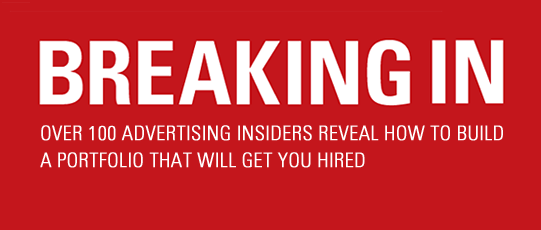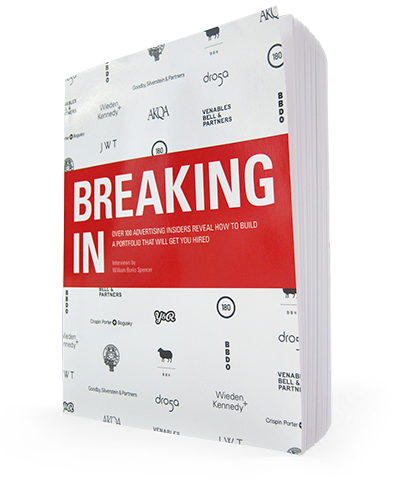Check out some great work from Jamie Barrett.
WS: What do you look for in a student book? And what impresses you?
JB: I look for at least one piece of work that is undeniably great. I think a lot of students make the mistake of putting together a solid, smart, A-minus book but don’t have the one thing that separates them from the pack. Whoever I hire, I want to feel they have potential to do something genius, not just the potential to do good, smart work. Life is short, and it doesn’t reward singles hitters.
WS: How important is finish? If ideas are the most important thing, can sketches be enough? Do you look at actual books anymore, or is it all websites?
JB: Sketches are enough, generally. If it’s a predominantly visual idea, then obviously, it’d be nice to see it more fully realized. But it’s not critical. On a day-to-day basis, creatives don’t come in with “finished” ideas. So creative directors are more than used to evaluating work that is “unfinished.” We often use reference, though, and that could be a good thing for students to consider…including visual references for some of their concepts. But generally, I’d much rather hire a diamond in the rough than a polished turd.
As for paper books, I rarely look at them these days. It’s predominantly websites now.
WS: How important is copy? Do you need to see long-copy ads?
JB: I don’t need to, no. But if you’re a writer, show me you can actually string words together. You can prove that in any number of ways, not just in the form of long copy. I’d say more than half the copywriters employed today are not true “writers.” If a student can show they are masters of the actual craft of writing, that’s a real differentiator.
WS: What do you think of showing work that is not advertising? Things like art, journal writing, photography, hobbies, etc.
JB: I’d say go for it. But just make sure your non-ad work isn’t a chore to go through. As you put your book together, picture the creative director, who will look at it as someone who doesn’t really want to. More often than not, going through portfolios is time consuming and dull. So you’re going to want to entertain that unmotivated CD. You’re going to want to make him or her feel like it’s worth spending more than 90 seconds with your book. Your “journal writing” may be brilliant, for example, but it better be brilliant in the first three sentences, or you’re going to lose the ADD crowd, which is 90 percent of us.
WS: Do you have any other advice?
JB: It’s not new advice, but it holds up: Don’t do the advertising book you think will impress someone else. Do the advertising book that impresses you. Your take on the world. Your take on a car. Your take on maxi pads. In short, your take — your voice.
I want to hire an original. Show me you are exactly that.


Comments are closed.